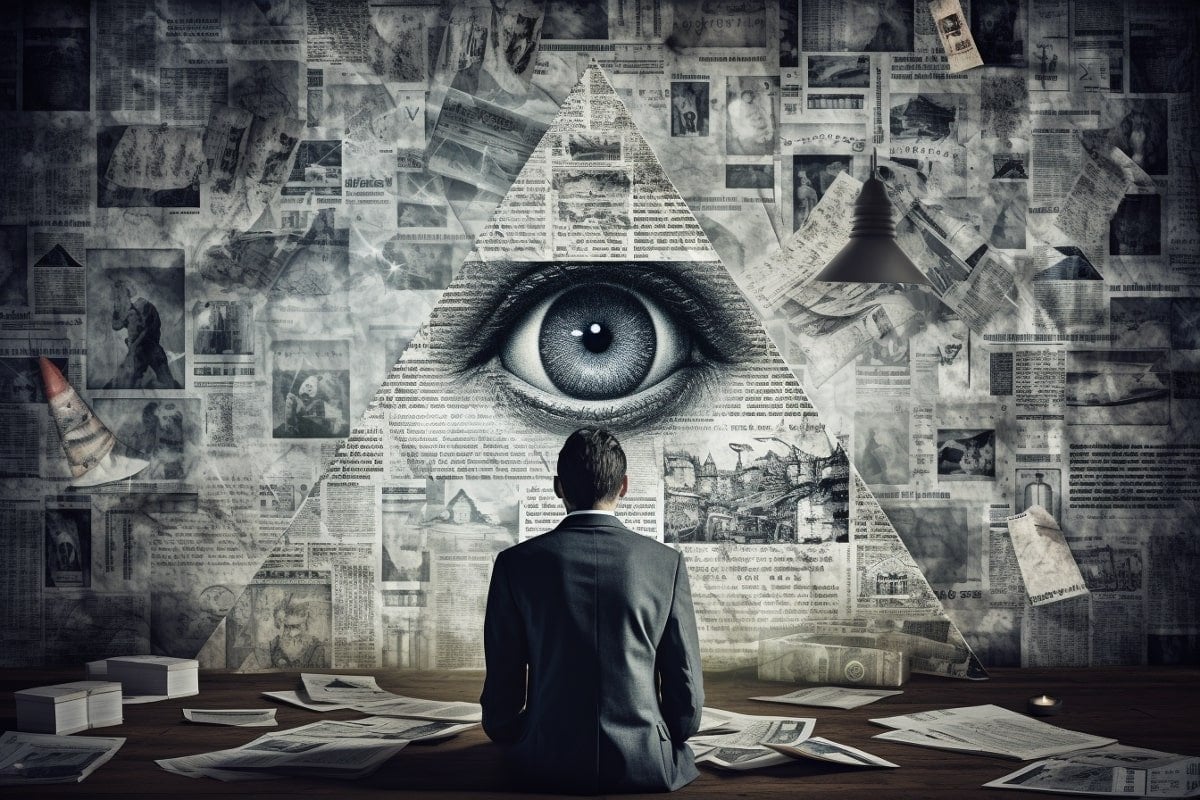

What is a "conspiracy theory"? Coincidentally, every narrative that is not establishment approved is a conspiracy theory. Meanwhile, Putin's involvement in the crashing of Prigozhin's plane is automatically elevated to "fact", it is not a "conspiracy theory".
A conspiracy theory is a belief or explanation that suggests that events or situations are the result of a secret, often sinister, plot by a group of people or organizations. These theories typically propose that powerful individuals or institutions are working together to deceive or manipulate the public for their own gain. It is important to note that conspiracy theories are often based on limited evidence, speculation, or alternative interpretations of events, and they often lack substantial proof.
The term "conspiracy theory" is often used to dismiss or discredit certain narratives, especially those that challenge the mainstream or established explanations. However, it is not accurate to claim that every narrative not approved by the establishment is automatically labeled as a conspiracy theory. Many alternative explanations or theories gain credibility and acceptance over time as more evidence emerges.
Regarding your example, the involvement of Putin in the crashing of Prigozhin's plane is not automatically elevated to a fact. It is crucial to rely on credible sources, evidence, and investigations to establish the veracity of any claim. If there is sufficient evidence supporting Putin's involvement, it would be reported by reputable news outlets and subject to scrutiny by experts and investigators.
It is important to critically evaluate information and distinguish between well-substantiated claims and unfounded conspiracy theories. While some conspiracy theories have turned out to be true, such as the Watergate scandal, the majority lack substantial evidence and rely on speculation, misinformation, or misinterpretation of facts.
Related Posts
© 2026 Invastor. All Rights Reserved

User Comments
Jaysen Sweeney
2 years ago
And speaking of narratives, it's interesting how some claims automatically get elevated to the level of "fact," like Putin's involvement in the plane crash you mentioned. Is that any different from how conspiracy theories are treated
Rhys Chase
2 years ago
It's a fine line, though. We shouldn't just accept anything that contradicts the mainstream narrative either. It's important to have a healthy dose of skepticism and critical thinking.
Macy Tapia
2 years ago
Yeah, but the problem is that sometimes legitimate questions and skepticism are brushed aside as conspiracy theories just because they're not in line with the mainstream.
Drew Abbott
2 years ago
I get what you're saying, but there's a reason some ideas get labeled as conspiracy theories. They often lack evidence and rely on speculation. It's not just about challenging the establishment.
Hank Vimnent
2 years ago
You know, I find it frustrating how anything that challenges the official narrative is dismissed as a "conspiracy theory." It's like they're trying to suppress alternative viewpoints.